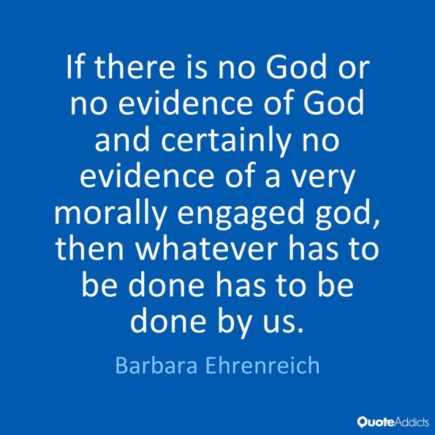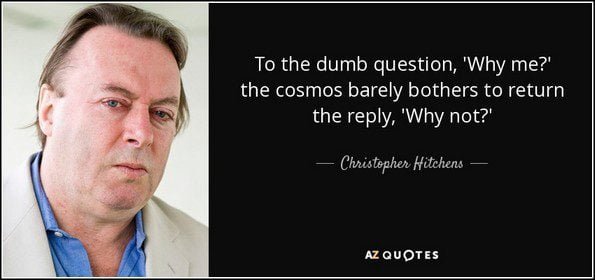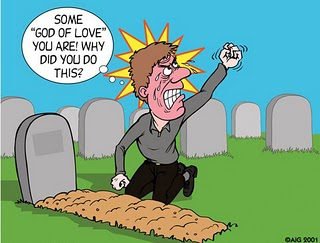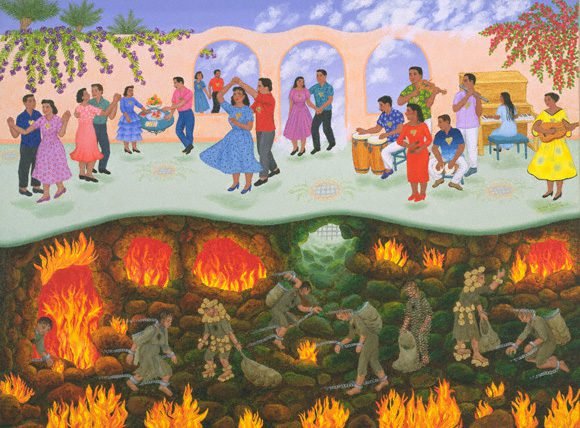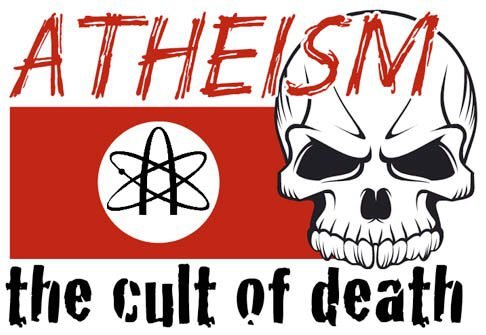
When did you first realize that you were not invincible? As I attend baseball and softball games this summer, I can’t help but notice how full of life the players are, ready and willing to face all the challenges that come their way. I, too, remember a time when I thought I had the world under my thumb, bending it to my will. I was fearless, arrogant, and full of life, taking on risks that this older version of me would never undertake. From narrowly dodging a semi-truck with my bicycle to climbing under a stopped freight train on a dare, I was known as a boy who loved to push limits, with no thought of what might happen if I miscalculated and came up short. As daredevils know, every successful dare makes one more brazen and willing to push beyond limits. On one hand, such people often accomplish great things, but they are also those who, when coming up short, find themselves needing medical treatment or bail money to get out of jail. There’s a fine line between foolhardy carelessness and taking risks in hope of great reward. Even after successfully making it to age sixty-three, I readily admit that I am not always sure where that line is. I suspect that my tombstone will say, He Died of One Stupid Decision Too Many. There used to be a television program titled, 1,000 Ways to Die. This show detailed the numerous, sometimes humorous, and often foolish and bizarre ways humans have met their ends. Some of my foolish stunts would have made for a great episode or two.
In the summer of 1975, I turned eighteen. I had returned to Bryan, Ohio, from Arizona, and moved in with my mom. I quickly found employment at Foodland, a local union grocery store. To avoid providing me insurance and full-time benefits, the grocery scheduled me to work forty hours one week and thirty-nine hours the next week. I didn’t care. Who needed insurance and benefits, right? My job as the dairy manager was just a means to an end — providing the money necessary for me to keep my car running and spend every night and weekend running around with my friends. My mom rarely saw me. After work, I was out with friends until late, and weekends were often spent doing group activities. Having recently had a bitter breakup with an Arizona college girl whom I was certain was going to be my wife, I had no interest in dating, so group social activities with my friends provided a balm for my hurting emotions.
After moving back to Ohio, I bought a 1960 Mercury Comet — black with a white top — for $200. Over the course of the summer, I put thousands of miles on the car, traveling all over the tri-state area. One Saturday, a bunch of my friends and I decided to go Clear Lake, a nearby body of water in Indiana. I drove, packing eleven friends in a car meant to hold five or six. With nary a thought for safety, off we went to the lake, spending the afternoon swimming and engaging in non-stop horseplay and flirting. Soon it was time to return home. I deposited each of my riders safely at their homes until only a boy named Kenny and I were left in the car.
Kenny was a couple of years younger than I. I knew Kenny through our attendance at First Baptist Church in Bryan. As we were headed towards Kenny’s home, he asked if he could drive my car. Now, I knew he didn’t yet have his license, but the fact that Kenny had grown up on a farm had, I thought, provided him with the necessary skills to drive an automobile, so I said yes! My car had a six-cylinder motor — 144 cubic inch displacement. Top speed was seventy miles per hour. Off we went with Kenny behind the wheel. As Kenny pulled the car onto Williams County Road 15.75, it began to fishtail a bit in the loose gravel. I thought, at the time, no big deal, Kenny will straighten out the car. Instead, as the car increased its side-to-side motion, Kenny panicked, lost control of the car, and drove it headlong into a ditch bank, rolling the car over twice. In a split second, everything around me turned upside down, and when the car finally came to a stop, Kenny’s head was sticking out of the space once occupied by the front windshield and I, having been thrown from the front to the back seat, found myself with the detached seat lying on top of me. Both of us were, surprisingly, unhurt, though I was so disoriented from the crash (perhaps I had a concussion?) that I went to a nearby farmhouse and walked in without knocking, asking if I could use their phone to call the Highway Patrol. Outside of a few scratches and bumps, Kenny and I were unscathed. Unfortunately, my car was totaled.
When the patrolman asked who was driving the car, I, knowing I would get a ticket for letting Kenny drive, lied, telling the officer that I was behind the wheel. This lie, along with four speeding tickets I would accrue in the coming months, caused my insurance rates to rise to $100 a month. Not only did I have an accident and four moving violations on my record, my replacement car for the Mercury was a 1970 Chevrolet Nova SS — 350 cubic inch displacement and 375 horsepower. I went from a car that couldn’t go faster than seventy miles per hour to a car in which I buried the speedometer needle on more than one occasion at one hundred and forty miles per hour.
This accident was my first real brush with death — at least the first one that impacted me psychologically. The car didn’t have seat belts, so Kenny and I could have easily been ejected from the car. We were lucky to have escaped serious injury. Of course, at the time, our luck was attributed to the providential care of the Christian God. I have often wondered what might have happened if I had let Kenny drive while ten other teenagers were beside us in the car. I can only imagine how much carnage there would have been had the car been stuffed full of happy, I’ve got the world by the tail teens when it rolled over twice. Imagine how much differently this story might have ended had everyone who had gone to the lake still been in the car. Fortunately, they weren’t, and all of them graduated from high school, married, and had children (and now grandchildren) of their own. This would not be my last brush with death, but it was my first — that moment in time when all of us come to realize for the first time how mortal and frail we really are.
Bruce Gerencser, 66, lives in rural Northwest Ohio with his wife of 45 years. He and his wife have six grown children and thirteen grandchildren. Bruce pastored Evangelical churches for twenty-five years in Ohio, Texas, and Michigan. Bruce left the ministry in 2005, and in 2008 he left Christianity. Bruce is now a humanist and an atheist.
Connect with me on social media:
Your comments are welcome and appreciated. All first-time comments are moderated. Please read the commenting rules before commenting.
You can email Bruce via the Contact Form.

